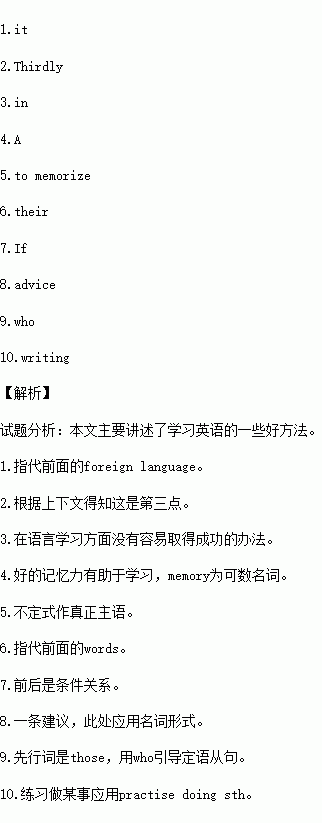题目内容
语法填空。
In order to know a foreign language thoroughly, four things are necessary. Firstly, we must understand the language when we hear 1. spoken. Secondly, we must be able to speak it ourselves correctly with confidence and without hesitation. 2., we must be able to read the language, and fourthly, we must be able to write it. We must be able to make sentences that are grammatically correct.
There is no easy way to success 3. language learning. 4. good memory is a great help, but it is not enough only5. (memorize) rules from a grammar book. It is not much use learning by heart long lists of words and 6. meanings, studying the dictionary and so on. We must learn by using the language. 7. we are satisfied with only a few rules we have memorized, we are not really learning the language. “Learn through use” is a good piece of 8. (advise) for those 9. are studying a new language. Practice is important. We must practice speaking and 10. (write) the language whenever we can.
 暑假作业海燕出版社系列答案
暑假作业海燕出版社系列答案 本土教辅赢在暑假高效假期总复习云南科技出版社系列答案
本土教辅赢在暑假高效假期总复习云南科技出版社系列答案 暑假作业北京艺术与科学电子出版社系列答案
暑假作业北京艺术与科学电子出版社系列答案
